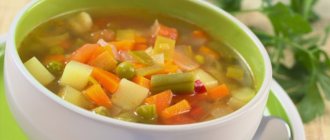The Mediterranean diet was not developed by researchers in scientific laboratories. This nutrition program has been formed over many centuries and is the heritage of different cultures and civilizations. And these are not just nice words. In 2013, UNESCO listed the Mediterranean diet as an Intangible Cultural Heritage of Humanity. In addition, the UN admitted that, no matter how strange it may sound, this diet was on the verge of extinction.
What is the Mediterranean diet
Probably, many now remembered crispy French baguettes with cheese, Italian pizza, pasta, wine and were a little taken aback. Somehow these products do not fit into what we are used to hearing about healthy eating. In addition, it is difficult to imagine that such a rich diet can serve as a preventive measure for heart disease, cancer, diabetes, and even be useful for weight loss.
We must admit that such amazement is not surprising. In fact, the traditional Mediterranean diet (in fact, the food system that UNESCO took under its wing) has less and less in common with the way modern residents of the Mediterranean region eat. This diet is based on the principles of nutrition that were followed by the grandparents of modern Italians and their neighbors. Over the past 50 years, the diet of Mediterranean residents has also come under the influence of globalization.
Content:
- What is the Mediterranean diet
- What does the diet consist of?
- Health Benefits
- Is it possible to lose weight on this diet?
- Facts and myths about the Mediterranean diet
- How to make your diet Mediterranean
- How to create the right menu
Nutrition and health experts continue to debate what the Mediterranean diet is: which foods are authentic and which have already been added due to globalization, how much and what fruits should be consumed, which legumes or grains are “native” to the Mediterranean . But all these, as they say, are details that do not significantly affect the real essence of this power system.
The Mediterranean is an amazing region that is a “link” between the West and the East. And there is nothing strange in the fact that the food culture in this region is a symbiosis of gastronomic preferences of different peoples of the world. Many of the products that are considered traditional to the Mediterranean today came to Europe from other regions. For example, Egypt made its contribution to the diet in the form of sourdough for bread, and the ancient Greeks and Romans elevated the olive tree and grapes to the rank of sacred. The Arabs shared their knowledge about fruits. Thanks to Italy, the Mediterranean diet is rich in aromatic herbs. By the way, wheat, grapes and olives are still considered the “three pillars” on which the Mediterranean diet rests. In addition, it would be strange if people who lived on the sea coast did not eat fish and seafood.
Diet for two weeks
The entire nutrition system of the two-week Greek diet is built on the principle of protein-vitamin alternation. This means that one seven days of the course will be on protein foods, another seven days on plant foods. The diet itself is quite simple and consists of repeating three days. The menu for the first day will look like this:
- A cup of unsweetened coffee. Sandwich with salty cheese.
- A cup of plain yogurt, sweetened with a spoonful of honey;
- Vegetable salad based on bell peppers and onions with a small chicken steak without oil, water;
- The afternoon snack is the same in composition as breakfast;
- Grilled fish steak, tea.
Menu for the second day:
- Vegetable salad without oil, tea;
- One tomato and fresh cucumber;
- Kefir soup with fresh vegetables, one potato (boiled or baked);
- A cup of Greek salad;
- Herbal tea, a portion of zucchini baked with tomatoes.
Diet on the third day of the course:
- A large cup of kefir or yogurt without sweet fillings, a portion of low-fat cottage cheese;
- Cucumber salad without oil (lemon juice dressing is allowed);
- A couple of tomatoes, grilled fish steak;
- Thin flatbread with tomato and a slice of salty cheese;
- Vegetable casserole with minced meat.
Be sure to read: What is a super diet? Principles of weight loss and menu
The diet can be repeated no more than once every six months. To maintain the results, it is recommended to switch to a proper nutrition system immediately after completing the course. The diet does not require a special “exit”.
What does the diet consist of?
Initially, the Mediterranean diet was a set of foods that poor people living in the region could afford. That is, this is food that people could collect in their gardens, catch in the sea and cook inexpensive nutritious dishes from it.
The traditional Mediterranean diet consists of the following food groups:
- plant foods (fruits, vegetables);
- whole grain bread, cereals;
- olive oil;
- Fish and seafood.
Cereals and bread
Approximately 55-60% of the total energy value of the diet is provided by products from this group. Cereals have always been an important part of the diet of the Mediterranean people. In their diet, these foods are the main sources of carbohydrates, as well as many vitamins and minerals. In ancient times, under the influence of Egypt, wheat came to the Mediterranean and became one of the main crops. A little later, the diet expanded to include rice and corn. But traditionally, wheat and barley were on the menu, and oats were used primarily as animal feed. Thanks to grain dishes, the Mediterranean diet is beneficial for the nervous system, heart, blood vessels, and digestive organs.
Olive oil
This product is considered the hallmark of the Mediterranean diet. It is the main source of healthy fats, vitamins A and oleic acid, and phenolic compounds. It is olive oil that makes this diet unique and so beneficial for the body. Scientific research data confirm that regular use of the product effectively protects against heart disease and senile dementia; olive oil serves as a natural antibiotic and anti-inflammatory agent. In addition, this product makes the Mediterranean diet beneficial for the skin and internal organs.
Vegetables and legumes
Another important component of this ancient food system is vegetables. They serve as an excellent source of fiber, a huge amount of vitamins, micro- and macroelements, essential oils and phytocomponents. And legumes, which have been grown in the region since ancient times, are a storehouse of vegetable protein.
The presence of a large number of vegetables makes the diet beneficial for absolutely all organs and systems in the human body. Many of the traditional Mediterranean fruits have pronounced medicinal properties. This category of products is useful for losing weight, lowering cholesterol, regulating the digestive system, maintaining healthy intestinal microflora, and improving the functioning of the cardiovascular system. Vegetables rich in minerals and vitamins prevent anemia, strengthen the immune system, and have antibiotic, antiviral and anticancer properties.
Fruits and honey
The mild climate of the Mediterranean allows the cultivation of a wide variety of fruits in the region. Grapes, pears, figs, dates, pomegranates, apples, quinces, oranges and many other fruits are very popular among residents of sea coasts. Researchers suggest that the Mediterranean tradition of ending each meal with a fruit dessert has Greek roots. Another healthy treat for the region’s residents is honey. This storehouse of useful substances was borrowed from the Egyptians many centuries ago. But traditionally in the Mediterranean it is consumed in small portions and not daily.
Wine and grapes
Red wine is one of the ingredients by which the traditional Mediterranean diet is recognized. Residents of the region have always loved and regularly consumed wine rich in phytocomponents. And as the results of modern research confirm, this product in moderate portions is beneficial for the cardiac system, immunity, and also for the prevention of anemia and cancer. By the way, in ancient times in the Mediterranean, wine was consumed differently than it is today. Previously, it was customary to dilute this divine drink with water and add honey and spices to it.
Today it is allowed to drink 1-2 glasses of drink per day.
Fish and seafood
Since time immemorial, fish, seafood and algae have been the basic food products for residents of sea coasts. For many centuries they have served people as a source of iodine, vitamin D, healthy fats and protein. But if previously they consumed mainly fresh fish, today they are increasingly being replaced from the diet by less healthy canned food and semi-finished products.
Meat in the Mediterranean diet
The Mediterranean diet is not a food system in which meat is the main source of protein. Products from this category, if they appear on the menu, appear infrequently. As a rule, in the Mediterranean, red meat was consumed very rarely, and, as a rule, in the form of traditional ham. In addition to this, dietary low-fat poultry sometimes appeared on the tables.
Mechanism of diet
According to the rules of the Greek diet for weight loss, the menu for each day should include three main meals, as well as two snacks of fruits, nuts or vegetables. The mechanism of operation of such a diet is based on the following principles of meals:
- Breakfast is always the most important meal of the day, as it supplies the body with energy for almost the entire first half of the day. A healthy breakfast that includes complex carbohydrates helps speed up and maintain a high metabolism, which will prevent the formation of fat deposits under the skin.
- Lunches and evening meals become stages of construction and renewal of tissues in the body. Therefore, they must contain a sufficient amount of minerals, vitamins, and protein components.
- Snacks help keep your metabolic processes at an elevated level and also reduce the feeling of hunger before your next meal. Any snack prevents loss of energy, improves well-being and mood. It is best to make fruits and berries the basis of your meals.
You should not start a course before you have learned the basic rules for its implementation. The rules for maintaining a diet are quite simple, but failure to follow them will cause a lack of results.
Health Benefits
The true Mediterranean food system is based on the dietary traditions of 13 countries located on the coasts of the sea. This food system was followed for centuries in Italy, Greece, Spain, the south of France and the Balkans, Morocco, Tunisia, Turkey, Lebanon and Syria. But it was only in the 1960s that researchers noticed that residents of the Mediterranean region were less likely than others to suffer from heart disease, obesity, diabetes and cancer. In addition, their life expectancy is much longer. As it turned out, the reason for this phenomenon lies in the special diet that the local population adheres to. Since the second half of the twentieth century, researchers from all over the world began to more seriously study the features of this nutritional system and its effect on the human body.
The traditional Mediterranean diet consists of large amounts of fresh fruit, fish, and olive oil, which, when combined with physical activity, have a beneficial effect on health.
Prevents cardiovascular diseases
Refusal of red meat in favor of seafood, consumption of olive oil, a huge amount of fresh vegetables, fruits and a little red wine made the Mediterranean diet incredibly beneficial for the heart and blood vessels. By following this nutritional system, you can prevent hypertension, atherosclerosis, reduce the level of bad cholesterol and increase good cholesterol, prevent excessive formation of blood clots, as well as the development of atherosclerosis. In addition, eating according to the Mediterranean system improves blood circulation and strengthens blood vessels.
Supports Energy
Many people pay attention to the fact that pensioners from Mediterranean countries look pretty good for their age and lead a very active lifestyle. Researchers attribute this to proper nutrition. The traditional diet of these people is rich in a variety of nutrients that serve as a good source of energy and also maintain muscle tone.
Increases life expectancy
This benefit is closely related to another benefit of the diet - its ability to reduce the risk of heart disease and cancer. Scientific research confirms that those who follow a Mediterranean diet have a 20% lower risk of sudden death.
Prevents Alzheimer's disease and degenerative diseases
This nutritional system helps improve cognitive functions of the brain, reduces the risk of developing multiple sclerosis, Parkinson's disease, senile dementia, and Alzheimer's disease. Researchers explain this by consuming large amounts of olive oil and nuts, which have strong antioxidant properties and improve blood flow to the brain, improving its function. In addition, the Mediterranean diet has neuroprotective properties, making it an effective protection against stroke, peripheral neuropathy, and impaired brain function.
This nutritional system is considered very useful for older people, as well as for people with low stress tolerance.
Protects against respiratory diseases
Recently, researchers are increasingly finding evidence that the Mediterranean diet is a good way to boost immunity, as well as protect against lung infections and respiratory diseases. Studies have shown that this diet is very beneficial for smokers, as a special set of foods prevents chronic obstructive pulmonary disease (COPD).
Reduces the risk of cancer
This is one of the most well-known benefits of the Mediterranean diet. Data from scientific experiments indicate that eating according to this scheme can prevent some types of cancer, including stomach, intestinal, and breast cancer.
Protects against diabetes
The predominance of fiber-rich vegetables in the diet makes it useful for the prevention of diabetes. Dietary fiber helps regulate blood sugar levels. In addition, eating according to this scheme is useful for people already suffering from diabetes, as it reduces cholesterol levels, improves blood circulation, and prevents capillary fragility.
Other useful properties:
- improves thyroid function;
- regulates metabolic processes;
- prevents rickets in children and osteoporosis in adults;
- improves bone mineralization.
No harm to health
The Greek way of eating has the following advantages:
- The Greek diet menu significantly improves health;
- has a positive effect on metabolism;
- has a great effect on the condition of nails, hair and skin;
- excess weight disappears gradually, which does not harm human health;
- the diet is rich in nutrients, vitamins and minerals;
- there are no time restrictions on eating;
- there is no constant feeling of hunger, leading to loss of strength;
- Suitable for most people, as it has virtually no contraindications.
The most important disadvantage for those who want to lose weight with such a diet is the lack of quick results. If you want to urgently lose extra pounds, such a diet will not help. The second disadvantage can be considered cost - some products included in the Greek diet cost quite a lot.
Is it possible to lose weight on this diet?
Research shows that people who follow a Mediterranean diet and exercise do not have problems with excess weight. And all because this system is based on the principles of proper and healthy nutrition.
The basic rules of the Mediterranean diet are to eat small meals and meals. The main emphasis is on fiber-rich plant foods and proteins, which are useful for both burning fat and gaining muscle mass. Most Mediterranean recipes are a healthy combination of meat and plant foods, and contain a minimum of harmful additives and sugar. Another advantage of this nutrition system is drinking plenty of fluids. While following the diet, you need to drink at least 6 glasses of pure still water every day. And water, as you know, is the best assistant for losing weight and cleansing the body of toxins.
Based on the Mediterranean nutrition system, nutritionists have developed more strict diets for weight loss. For example, there is the “Three Soups” diet, the essence of which is to consume one of the traditional Mediterranean dietary soups for lunch and dinner: gazpacho, minestrone or pesto for a certain period of time (from a week to 21 days). In addition to soups, during the period of weight loss you can include fish, low-fat cottage cheese, poultry and a lot of vegetables in your menu. And I must say that the reviews about this diet are only positive.
The essence of the diet
The Greek diet is balanced, you can stick to it for many years. The food system is based on the division of products into three groups. The use of products from each group has its own characteristics. This diet does not require calorie counting or strict adherence to a regimen; you just need to remember the permitted foods and their combinations. With this diet, excess weight, if any, disappears gradually, no more than 2 kg per week.
If you need to lose weight urgently, the Greek diet, which lasts 5 days, will help. During these days, up to 7 kg of excess weight is lost. There is a softer version of the nutrition system for quick weight loss for 14 days. Those who choose this diet can expect to lose up to 10 kg in two weeks.
Facts and myths about the Mediterranean diet
Many people know that the Mediterranean diet is healthy. But in addition to true information, there are also many myths about it.
Myth 1: Following the Mediterranean diet is expensive.
In fact, following the nutritional principles of a true Mediterranean diet is not as expensive as some people think. Moreover, initially this diet was a set of products from the diet of the Italian poor. For a modern person, to make their diet closer to the Mediterranean diet, it is enough to include in the menu, for example, beans or lentils, which will serve as a source of plant protein, and also focus on plant-based vegetables and whole grains. And these products, by the way, are much cheaper than many of the unhealthy but beloved semi-finished products.
Myth 2: Red wine is healthy in any quantity
In reality, only moderate consumption of red wine is beneficial. Experts have long ago determined what “moderate” means. For women, this is one glass of wine a day, for men, a maximum of two. Just by not exceeding these standards, you can count on the beneficial effects of red wine on the body, in particular on the cardiovascular system.
Myth 3: A large portion of spaghetti and a lot of bread is the Mediterranean diet
In fact, it is very difficult to find an Italian who consumes pasta in huge quantities. A traditional serving of spaghetti or other pasta is 55-60 g, and a serving of 80 g of pasta is already considered very large. This amount of pasta on a plate will take up very little space. True adherents of the Mediterranean diet will devote most of the plate to fresh vegetables, salads, fish or dietary meat.
They also rarely eat more than one slice of bread, and they also choose whole grain products.
Myth 4: The Mediterranean diet is just a collection of foods.
Mediterranean people take the choice of foods for their diet very seriously. They carefully plan the menu for the week. And few of them will eat the finished dish in a hurry or in front of the TV. For Mediterranean people, food is an important part of life. But not the most important one. Following the Mediterranean diet involves not only eating a certain list of foods, but also following a special way of life, an important part of which is high physical activity.
Myth 5: All vegetable oils are equally good
Vegetable fats are in many cases more beneficial than animal fats. But even in this category there are more and less useful products. The Mediterranean diet is best followed by using cold-pressed olive or peanut oil. Both products contain monounsaturated fatty acids, which are known for their wide range of health benefits. It is better to add olive oil to salads and not expose it to heat. And for frying, it is better to take other types, including peanut, sunflower, corn, rapeseed, cottonseed, and safflower.
Greek diet
| This is a modified version of the Mediterranean diet. It is also considered the most beneficial for the human body. This is not only a way to get your figure in order, but also an excellent solution as part of a healthy lifestyle. |
Who can I recommend the “Greek” fashionable diet to ? Those who want to get rid of a few kilograms and improve their health. The diet is quite easy to follow. Sometimes it’s difficult to even call it a diet – the dishes are tasty, but light, very varied. Choose high-quality and natural products, maintain a balance of what is permitted.
What is the essence of the “Greek” fashion diet ?
- You can - foods with a low glycemic index, these do not cause sudden spikes in sugar, which means that extra pounds will not form.
- oatmeal,
- rye and whole grain bread,
- dark unpolished rice (and all unpolished grains),
- peas and soybeans,
- vegetables and fruits,
- black chocolate.
- lean meat - poultry or rabbit,
- sea fish, seafood,
- skim milk, fermented milk products, yoghurts,
- legumes
- from avocado,
- from fresh (not roasted) nuts,
- from vegetable oils, in particular cold-pressed, unrefined.
How healthy is this fad diet ? It should be noted that this is a very balanced and healthy diet with minimal restrictions that must be done, being a resident of a modern metropolis and being exposed to all sorts of temptations. It is a bit of an exaggeration to say that you can rapidly lose even a few kilograms, but in just a week or two. The effect will be noticeable and lasting if you make the Greek diet your choice for a longer period of time, or even for life. Remember that the Mediterranean type of diet is considered the healthiest in the world and has no special contraindications.
How to make your diet Mediterranean
You should never switch to a new power system suddenly. This advice remains relevant in the case of the Mediterranean diet. In order for the body to accept the transition to a new menu painlessly, nutritionists advise following several rules.
Eat more vegetables. Before switching your body completely to a Mediterranean diet, it is advisable to gradually accustom it to eating a large amount of vegetables. The easiest way: replace your usual snacks with salads. For example, instead of sandwiches throughout the day, you can make a healthier salad with tomatoes, feta and a little olive oil.
In addition to salads, it is important to introduce more vegetable soups into your diet.
Don't skip breakfast. This is one of the most important rules of healthy eating. The Mediterranean diet includes a proper breakfast. That is, the first meal should consist of foods rich in fiber. The best choices are fruits and whole grains. By the way, if your breakfast consists of a cup of coffee and a sandwich, then it is better to use whole grain bread.
Best materials of the month
- Coronaviruses: SARS-CoV-2 (COVID-19)
- Antibiotics for the prevention and treatment of COVID-19: how effective are they?
- The most common "office" diseases
- Does vodka kill coronavirus?
- How to stay alive on our roads?
Seafood twice a week. And this is one of the favorite tips of all cardiologists. After all, sea fish and shellfish contain huge amounts of omega-3 fatty acids, which are essential for the healthy functioning of the heart and blood vessels. Tuna, salmon, herring, sardines or cod - the type of fish does not really matter, the main thing is that it is marine. In addition to this, it would be nice to pamper your body with shellfish, which also contain a huge amount of useful components.
One day of vegetarianism. This is another trick that will help train your body to eat like a real Mediterranean resident. Once a week, you should completely exclude animal products from your diet. Instead, eat beans, grains and plenty of vegetables. When the body gets used to this regime, you can add another vegetarian day. As for red meat, ideally its consumption should be reduced to 450 g per month, and about 1 kg of chicken per 30 days is allowed.
Eat the right fats. The right fats, from the point of view of nutritionists and adherents of the Mediterranean diet, are olive oil, olives, avocados, nuts, and seeds. From these foods, the body will receive all the necessary fatty acids and avoid harmful saturated fats. The body should be accustomed to olive oil gradually, replacing it with other more familiar types of vegetable fat.
Don't forget about dairy products. Dairy products contain some substances that the body cannot get from other foods. The Mediterranean diet, as the most healthy food system, does not exclude cheeses (remember France with its amazing blue cheeses or Italy with its mozzarella or Parmesan), yoghurts (the most popular Greek) and other fermented milk products. But they should not be abused either. 1 glass of yogurt or milk and about 30 g of cheese per day are considered beneficial for health.
And for dessert - fruit. Ice cream, cakes with rich creams, rich pastries - all this is prohibited. Instead of these unhealthy desserts, slim, healthy residents of the Mediterranean region choose strawberries, fresh figs, grapes, apples and other delicacies.
For every taste: types of techniques
The Greek diet for weight loss includes several types of menus, from which everyone can choose the most suitable one.
For a three days
To unload and cleanse the body for three days, you need to eat feta cheese. Since it contains a lot of salt, it must first be soaked in water. With this diet option, you can lose 1-2 kilograms.
The food during these three days is approximately the same.
- For breakfast you can eat a piece of bran bread or a toasted slice of black cheese, feta cheese (30g) and a cup of green tea without sugar.
- An excellent option for lunch is a vegetable salad (serving no more than 250 grams), 100 grams of feta cheese and berry jelly or freshly squeezed juice.
- For an afternoon snack, a glass of kefir will help satisfy your hunger.
- In the evening (for dinner) it is recommended to eat 100 grams of feta cheese and a cup of rosehip decoction or unsweetened tea.
However, this diet is not suitable for people suffering from hypertension and problems with the cardiovascular system.
For 5 days
The 5-day version of the Greek diet is suitable for quick weight loss. The diet is quite limited and strict, but in 5 days on the Greek diet you can lose up to 7 kg of weight.
- For breakfast you can have a cup of unsweetened green tea and fresh fruit.
- You can snack on a couple of oranges.
- Lunch consists of sliced vegetables and cheese.
- Dried fruits are suitable for an afternoon snack.
- Dinner includes stewed or boiled vegetables.
For 2 week
The peculiarity of the Greek diet menu during these 14 days is the alternation of vegetarian and protein days. The basis of the diet is a three-day menu, which is repeated throughout the entire period.
The first day:
- For breakfast – toast with a piece of feta cheese or toast and a cup of unsweetened coffee.
- The snack will be 200 ml of yogurt.
- For lunch you can eat baked chicken fillet and a salad of red onions and bell peppers. Be sure to drink 400 ml of water, but without gas.
- The afternoon snack is identical to breakfast; instead of coffee, you can drink tea, but also unsweetened.
- For dinner, a slice of baked fish and a cup of tea are recommended.
Second day:
- For breakfast, sliced vegetables and salad leaves, a cup of coffee without sugar are allowed.
- You can snack on tomatoes and cucumbers.
- For lunch - vegetable soup with kefir or okroshka, for the main course - baked potato or eggplant. Don't forget to drink 400 ml of water.
- For an afternoon snack, you can treat yourself to a serving of Greek salad.
- The evening meal will consist of baked zucchini with cheese and tomatoes and herbal tea.
Day three:
- For breakfast you can eat 200 grams of low-fat cottage cheese or 250 ml of natural yogurt, a cup of unsweetened coffee or tea.
- You should have a snack with a salad with green onions and cucumbers, seasoned with a few drops of olive oil.
- For lunch, you are allowed a piece of baked fish, a couple of tomatoes and green onions, as well as 400 ml of still water.
- For an afternoon snack, you can eat lavash with tomatoes and feta cheese.
- Dinner will be a casserole with minced meat (for example, lamb), onions and eggplants.
Other options
There are other types of diets that rely on seafood and/or goat cheese and cucumbers. They got their name from the well-known goddess Aphrodite.
The basic rules are simple.
- Fried and fatty foods, sweets, nuts and sweet fruits, potatoes, and cereals should be excluded from the diet.
- You must drink at least 1.5 liters of clean water per day. In addition, herbal teas are welcome.
- You can use seasonings - basil, oregano, rosemary, thyme.
Important!
If your health worsens during the diet, you must abandon this weight loss technique.
On seafood
The seafood option is very beneficial for the cardiovascular system, has a great effect on appearance and is rich in various vitamins.
The main thing to remember:
- fish and seafood are the main source of fat. It is allowed to use vegetable oil, preferably olive oil;
- you need to eat shrimp and seaweed at least three times a week;
- from meat products, preferably poultry, in particular chicken;
- Only egg whites can be consumed, the yolk should be excluded due to fat;
- eat celery.
This is what the daily diet looks like:
- after sleep you need to drink a glass of warm water with lemon;
- for breakfast you can have a vegetable salad with beans, a cup of unsweetened green tea or a glass of fresh juice;
- for lunch, seafood salad and sliced vegetables are allowed;
- the afternoon snack will consist of 50 grams of low-fat cheese;
- For dinner you can eat a vegetable salad and boiled fish or meat.
With goat cheese and cucumbers
Three-day – softer, more gentle.
The first day:
- For breakfast you can eat rye bread toast and 100 grams of goat cheese.
- The snack will be a glass of low-fat kefir.
- For lunch, soup with cheese and mushrooms, as well as cucumbers (can be seasoned with olive oil and lemon juice) are allowed.
- For afternoon tea, herbal tea.
- The evening meal will consist of vegetables baked with cheese.
Second day:
- For breakfast you can eat oatmeal with water and dried fruits.
- A snack will be a glass of low-fat yogurt and an apple.
- Lunch will consist of shrimp and sliced vegetables.
- The afternoon snack will consist of unsweetened berries.
- For dinner, you can eat a steamed omelette with cheese and tomatoes.
Day three:
- For breakfast, boiled egg white, goat cheese and cucumber.
- You can have a snack with low-fat cottage cheese and a couple of fruits.
- For lunch, julienne with mushrooms and goat cheese is allowed.
- For an afternoon snack, a glass of yogurt will be enough.
- Dinner will consist of baked vegetables.
The ten-day course involves a more strict approach to the diet, as well as the eating routine. You need to eat every 2 hours - the first meal is at 8:00, the last is at 20:00.
The rotation of dishes is as follows:
- rye bread with goat cheese;
- boiled egg and goat cheese;
- fruit or vegetable salad;
- a slice of goat cheese;
- low-fat cottage cheese;
- 1 glass of sour milk or kefir, always low-fat;
- natural yogurt or low-fat kefir (200 ml).
How to create the right menu
Mediterranean cuisine is unique in that it is both very healthy and incredibly tasty. This is the case when we eat delicacies and at the same time lose weight, improve our health, and improve our appearance.
Recommended daily portions of foods:
- vegetables – 100 g of leafy vegetables and 50 g of others;
- potatoes – 100 g;
- legumes – 100 g;
- nuts – 30 g;
- fruits – 1 apple, 1 banana, 1 orange, 200 g melon or watermelon, 30 g grapes (optional);
- fish (or lean meat) – 60 g;
- cereals – 50-60 g of pasta or rice, 25 g of bread;
- dairy products - 1 glass of milk or yogurt, 30 g of cheese;
- eggs - 1 piece;
- wine – 125 ml dry red wine.
Sample menu for the week in the table
| Monday | |
| Breakfast | A glass of milk, bread with olive oil and a few slices of cheese, an apple |
| Dinner | Arugula salad, turnip soup, potatoes with spinach, baked mackerel, fruit |
| Snack | Slice of whole grain bread with apricot jam |
| Dinner | Omelet with asparagus, medlar |
| Tuesday | |
| Breakfast | Hercules with Greek yogurt and strawberries, mint tea |
| Dinner | Tomato salad, fried chicken, chickpeas with spinach, persimmon jelly |
| Snack | Pear |
| Dinner | Escalivada, slice of whole grain bread with tomatoes, tuna with goat cheese, 2-3 apricots |
| Wednesday | |
| Breakfast | A glass of milk, a few slices of cheese, whole grain bread, a peach |
| Dinner | Gazpacho, omelette, fruit |
| Snack | Cottage cheese with walnuts and honey |
| Dinner | Broccoli omelette, zucchini puree, bunch of grapes |
| Thursday | |
| Breakfast | 100 ml orange juice, muesli, glass of milk or herbal tea |
| Dinner | Couscous, stewed mushrooms with garlic, sardines, baked apple |
| Snack | Horchata |
| Dinner | Hummus, anglerfish with almonds, 2-3 plums |
| Friday | |
| Breakfast | Carrot-apple juice, milk pudding |
| Dinner | Garlic soup, gnocchi with pesto sauce, fried dorado, endive salad, fruit |
| Snack | Bread with cheese, a handful of cherries |
| Dinner | Omelet with artichoke, peach |
| Saturday | |
| Breakfast | Slice of whole grain bread, tomatoes, mozzarella |
| Dinner | Baked lamb meat, salad, rice, grapefruit |
| Snack | Fruit salad |
| Dinner | Whole grain bread, cheese with nuts, papaya |
| Sunday | |
| Breakfast | Muesli, Greek yogurt, apple juice |
| Dinner | Tomato soup, fried salmon with sour cream sauce, salad, rice |
| Snack | Low-fat cheese, slice of bread |
| Dinner | Lentils with vegetables, mint tea |
Canned olives, baked artichokes, stuffed eggplants, stewed asparagus and fried broccoli, mushroom dishes, hundreds of salads and soups, as well as a lot of fish and seafood dishes. All this and many other dishes constitute Mediterranean nutrition. Based on the huge list of products allowed in the diet, it is not at all difficult to create original menus for a week or longer. But it is important to consider that the daily nutrition plan should consist of 4-5 meals.
The Mediterranean diet is not just a set of products, but a lifestyle, following which you can significantly improve your health, get rid of extra pounds and turn into a connoisseur of healthy and tasty food. Many celebrities base their nutritional system on the Mediterranean diet. They say that star beauties Penelope Cruz, Britney Spears and Cindy Crawford have been keeping themselves in shape for many years using this nutrition system.
More fresh and relevant information about health on our Telegram channel. Subscribe: https://t.me/foodandhealthru
We will be grateful if you use the buttons:
Fast diet for 5 days
The more balanced Greek diet for 5 days 7 kg also provides a strict diet, but is a little easier to tolerate. The number of kilograms lost will depend entirely on the initial body weight.
The menu for every day is almost the same, but those who are losing weight can add variety to it by periodically changing the set of fruits or vegetables. The five meals a day scheme looks like this:
- A small cup of chopped fruit, unsweetened tea;
- A couple of oranges;
- A serving of chopped low-calorie vegetables. A small piece of cheese (it is allowed to make a salad with cheese without dressing).
- A handful of dried fruits;
- Vegetable stew or side dish of boiled vegetables.
Tea without added sugar can be consumed throughout the day. Additionally, rosehip decoction and any amount of clean water without gas are also allowed.
Greek salad diet
In practice, other nutrition systems based on Greek dishes are also used. Thus, a nutritional system based on a nutritious Greek salad is also very popular. The product can be considered dietary and low-calorie, as well as healthy, however, following a strict diet on Greek salad is not recommended for more than a week. The menu for each day is as follows:
- Any vegetable dish (stew, salad);
- Sliced avocado, a cup of fruit and some nuts of any kind;
- Lunch includes a traditional salad and a portion of boiled chicken;
- Any vegetable dish.
You are allowed to drink green tea without additives, rosehip decoction, still water in any quantity. If you feel very hungry, you can also eat fresh vegetables.
Features of choosing a course
Nutritionists and the creators of the Greek diet categorically do not recommend taking low-calorie courses on your own, as this may be harmful to health. The short-term three-day diet is safe, however, it is useful to consult a doctor before using it. The classic long-term diet, based on the traditional Greek diet and proper nutrition system, has virtually no contraindications. However, it should not be used without a doctor’s permission. It is also advisable to undergo a medical examination.
You should choose a diet based on the following criteria:
- The presence or absence of contraindications and restrictions;
- Speed of weight loss;
- Taste preferences (important as a psychological factor preventing breakdowns);
- Food availability.
As mentioned above, the ideal option that suits everyone is the classic Greek diet, characterized by a balanced diet and a large selection of food products.









